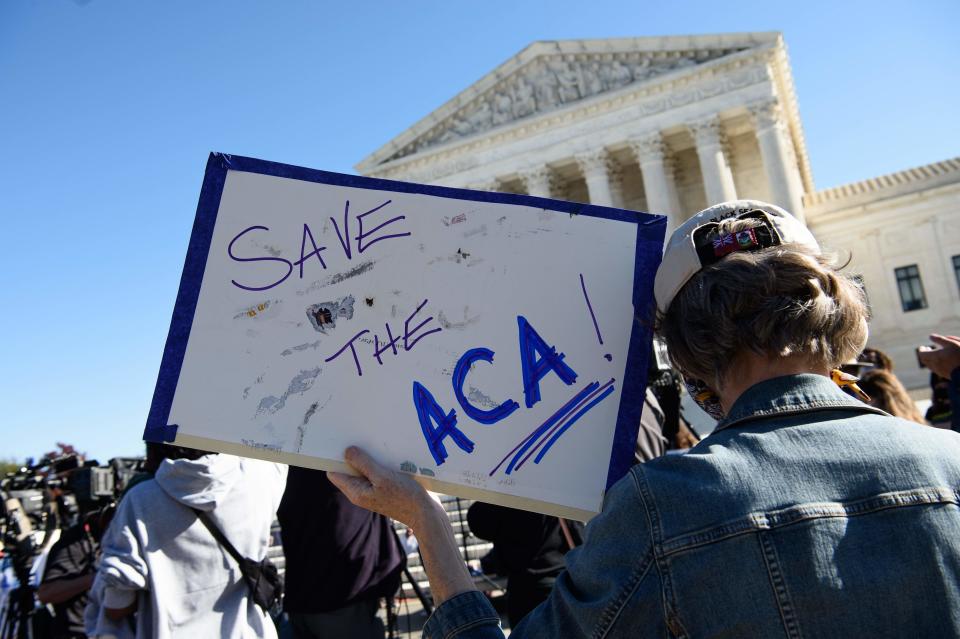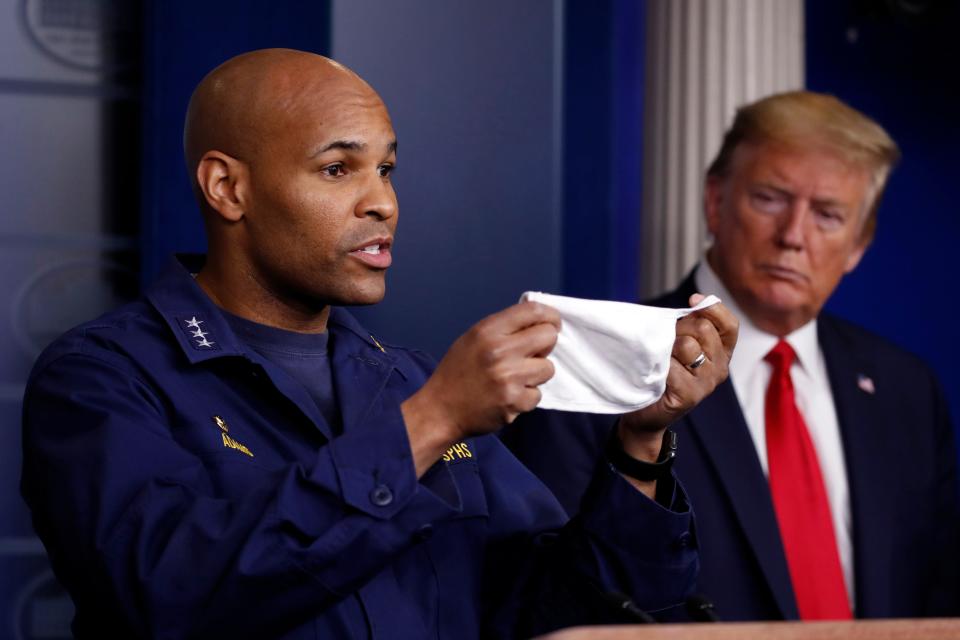Repealing the Affordable Care Act? What a second Trump term might mean for health care
On the campaign trail, former President Donald Trump is once again promising to repeal and replace the Affordable Care Act – a nebulous goal that became one of his administration’s splashiest policy failures.
The Obama-era health law is even more popular and widely used now than it was in 2017, when Trump and congressional Republicans proved unable to pass their own plan. Despite repeated promises, Trump never presented his own Obamacare replacement.
Nevertheless: “We’re going to fight for much better health care than Obamacare. Obamacare is a catastrophe,” Trump said at a Jan. 6 campaign stop in Iowa.

Trump's unpredictability makes it difficult to figure out his health care priorities for a prospective second presidency. He rarely gives details and frequently changes his positions, and his campaign did not respond to a request for comment. We can, however, review his record on health care for what it might tell us.
Though much of what his administration accomplished in health care has been reversed by the Biden administration, Trump secured some significant policy changes that remain in place today.
COVID-19
Perhaps Trump’s biggest achievement is something he rarely talks about in the current campaign. His administration’s “Operation Warp Speed” managed to create, test and distribute a COVID-19 vaccine in less than a year, far faster than even the most optimistic predictions.
He also signed a massive COVID-19 relief bill (after first threatening to veto it) and presided over some of the largest boosts for the National Institutes of Health’s budget since the turn of the century.
Not that his COVID-19 record is sterling. Campaigning in 2020, Trump held rallies that many public health experts regarded as reckless in the face of a highly contagious, deadly virus. He personally flouted public health guidance from his own officials after contracting COVID-19 himself and ending up hospitalized.

Abortion
Trump’s biggest contribution to abortion policy was indirect: He appointed three Supreme Court justices who were instrumental in overturning the constitutional right to an abortion.
During his 2024 campaign, Trump has been all over the map on the red-hot issue. Since the Supreme Court overturned Roe v. Wade in 2022, Trump has bemoaned the issue as politically bad for Republicans; criticized Florida Gov. Ron DeSantis for signing a six-week abortion ban; and vowed to broker a compromise with “both sides” on abortion, promising that “for the first time in 52 years, you’ll have an issue that we can put behind us.”
Democrat broadside Biden to launch full-scale attack on Trump over abortion on Roe v. Wade anniversary
He has so far avoided spelling out how he’d do that, or whether he’d support a national abortion ban after any number of weeks.
More recently, however, Trump appears to have mended fences with key abortion opponents, whose support helped him get elected in 2016.
Health insurance
Many of the Trump administration’s health insurance actions still stand. For example, there’s the No Surprises Act, a bipartisan measure aimed at protecting patients from unexpected medical bills stemming from payment disputes between health care providers and insurers.
His administration also pushed price transparency regulations that require hospitals to post prices and insurers to provide estimated costs for procedures. Hospitals have been slow to comply.
Medicaid
While first-time candidate Trump vowed not to cut popular entitlement programs like Medicare, Medicaid and Social Security, his administration did not stick to that promise.
The Affordable Care Act repeal legislation Trump supported in 2017 would have imposed major cuts to Medicaid, and his Department of Health and Human Services later encouraged states to require Medicaid recipients to prove they are working in order to receive health insurance. However, the legislation did not pass.
Drug prices
The Trump administration was active on trying to reduce the price of prescription drugs for consumers. Trump signed measures allowing pharmacists to tell patients when the cash price of a drug is lower than the cost with insurance.
However, many of Trump’s proposals were blocked by the courts. One plan that never took effect would have pegged the price of some expensive drugs covered by Medicare to prices in other countries. Another would have required drug companies to include prices in television advertisements.
A regulation allowing states to import cheaper drugs from Canada did go through. However, it took until January 2024 for the FDA to approve the first importation plan, in Florida. Canada won’t allow exports that risk causing drug shortages there, leaving unclear whether the policy is workable.
Veterans health
Some advocates credit Trump for overhauling Department of Veterans Affairs health care. He signed a major bill allowing veterans to obtain care outside VA facilities.
That said, White House officials also tried to scuttle passage of the spending needed to pay for the initiative.
Medical freedom
Trump scored a big win for the libertarian wing of the Republican Party when he signed into law the “Right to Try Act,” intended to make it easier for patients with terminal diseases to access drugs or treatments not yet approved by the FDA.
Trump said in a Jan. 10 Fox News town hall that the law had “saved thousands and thousands” of lives. There’s no evidence for the claim, and it is not clear how many patients have managed to obtain treatment using the law. The FDA had already typically granted requests for “compassionate use” of not-yet-approved drugs anyway.
The stumbling block, which the law did not address, is getting drug companies to release doses of medicines that are still being tested and may be in short supply.
KFF Health News is a national newsroom that produces in-depth journalism about health issues and is one of the core operating programs at KFF – an independent source for health policy research, polling and journalism.
This article originally appeared on USA TODAY: What is Trump's health care plan? What a second term might look like
